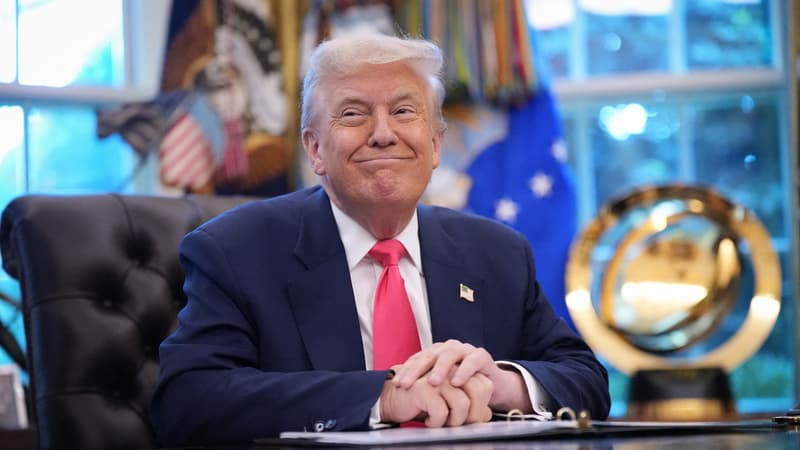The president of the United States, Donald Trump, announced new customs tasks on Thursday, September 26, to 100% for medicines and also affecting trucks and furniture produced outside the United States.
If the definition of these drugs “remains blurred”, underlines Michael Wan, economist from the Japanese MUFG Bank in Singapore, “we start from the beginning that this will not include generic drugs sent by countries such as India, which could be saved by these ads.”
In a separate publication, Donald Trump has also announced 25% of customs duties in “all heavy goods made in other regions of the world.” According to him, a measure supported US truck manufacturers such as “Peterbilt, Kenworth, Freightliner, Mack Trucks and others.”
Among the foreign companies that compete to these manufacturers in the US market are the Swedish Volvo and the German Daimler. The titles of the two companies fell sharply after the closure of European scholarships on Thursday night.
Vague motivations
The president explained that these customs duties in heavy goods vehicles were motivated by “many reasons, but above all, for national security purposes!” In spring, the Trump administration had already announced to launch an investigation to determine if foreign truck imports constituted a threat to “national security.”
The real estate tycoon also plans to impose customs duties in many furniture. “We will apply a 50% tax on all kitchen furniture, bathroom sink and associated products,” as of October 1, and “a 30% tax on padded furniture,” he wrote.
According to the United States International Trade Commission, in 2022, imports, mainly from Asia, represented 60% of all furniture sold, including 86% of all wooden furniture and 42% of all padded furniture.
The title of retailers Wayfair and Williams Sonoma, which depend on these imported products, fell to the fence after this announcement. This offensive price revives the fears of inflation in the United States, the world leader.
Donald Trump is responsible for relaunching the manufacturing industry thanks to protectionist policies, which mark a complete reversal of American policy directed so far to maintain an open economy.
Its administration has imposed a basic customs right of 10% in all countries, with much higher rates for a certain number of them whose exports to the United States exceed imports.
The president significantly imposed a surcharge to the main commercial partners of the country, such as Canada, Mexico, the European Union and China, with whom the conversations are still underway.
Source: BFM TV


